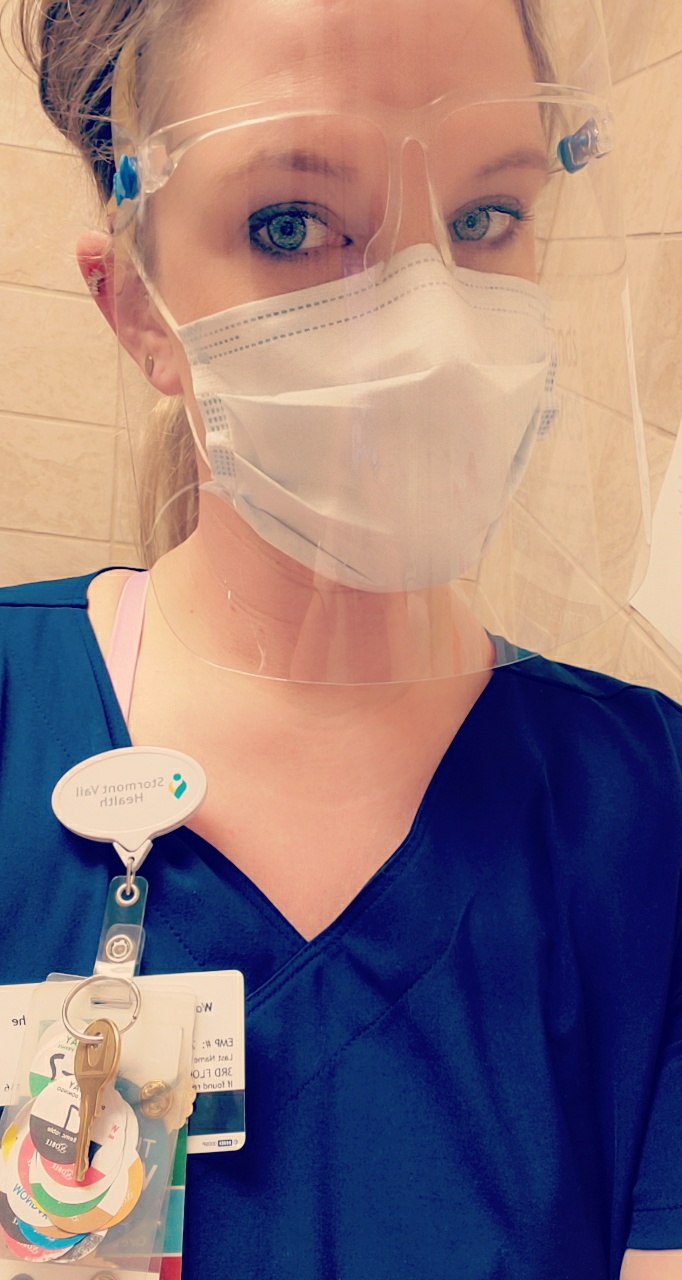Look Beyond the Obvious When Exploring Healthcare Careers

By Jackie Koch, BSN, RN-BC, NE-BC
Magnet Program Manager, Stormont Vail Health
I always knew I wanted to be a nurse growing up. My grandmother was a nurse, and she always told me stories about her time working in the hospital overnight while having small children at home. I specifically remember her telling me how she helped a first-time mother give birth when the doctor couldn’t get to the hospital in time, and about having to go around giving shots of antibiotics to patients. Hospitals were a lot different back then!
Grandma worked in a two-story house that was converted to a hospital that had a large “sleeping porch,” as she called it, where all the patients were lined up in rows on beds with just a small privacy screen between them. As a child, I was amazed by her stories, and they inspired me at a young age to decide to become a nurse.
After 10 years in the field, I’ve learned there are a multitude of different jobs in health care besides being a nurse or a doctor. Nurses and doctors couldn’t care for patients without an entire network of people working to support them. As you explore health careers, don’t forget to look at such critical occupations as:
- Certified Nutritionists. Nutritionists are important in health care, and as a society, we need to focus more on nutrition earlier in life to prevent disease. Everyone has heard the saying “you are what you eat,” and that is very true! Everything you put into your body has an affect, and ensuring adequate and appropriate nutrition is crucial. We need more nutritionists in schools to teach children how to eat properly and plan meals, and in doctors’ offices to educate and help people with meal planning. Our society would be healthier and less obese with more nutritionists.
- Respiratory Therapists. The COVID pandemic has brought respiratory therapy into the limelight. Respiratory therapists manage the patient’s airway and ensure patients have adequate respiratory status. They are there when patients go into respiratory distress and they manage ventilators, which help people breathe. They also provide important education to patients who suffer from chronic respiratory diseases such as COPD and emphysema. RTs also teach patients about how to quit smoking and why it’s so important that they do.
- Laboratory Scientists and Ultrasound, Sonography and Radiology Technicians. Doctors and nurses could not do their jobs without the important information they get from laboratory scientists, sonographers, ultrasound and radiology technicians. Laboratory scientists perform all the testing on blood and specimens, while sonographers, ultrasound and radiology technicians use technology to take pictures of body organs and systems. These tests give doctors the information they need to make a diagnosis and so they can direct nurses about how to care for the patient.
- Speech Language Pathologists. Speech language pathologists assess, evaluate and use therapy to improve brain, cognitive, speech and swallowing functions. For example, when a patient has a stroke, the brain is affected and speech language pathologists help to rehabilitate cognitive, speech and swallowing functions in order to help the patient regain what was lost during the stroke. Likewise, SLPs also work in schools and help children with language and learning disabilities as they learn how to speak, read and write.
Many people tell me they don’t want to go into health care because they don’t like blood. I tell them I’ve been a nurse for 10 years and only rarely deal with blood — and if that still makes you queasy, there are many people on your team who can help!
Thousands of people work on our team at Stormont Vail, and all play a different part in taking care of the health of our community. Some additional fields you might want to explore include:
- Physical therapy
- Occupational therapy
- Pharmacy
- Behavioral therapists
- Social workers
As you research and explore opportunities in health care, I’d also suggest you look into these other roles that are crucial to the overall operations of the hospital:
- Medical billing
- Medical coding, scribing or transcribing
- Facilities and maintenance
- Environmental services
- Nutrition services
- Security and transportation
One of the many cool things about working at Stormont Vail are the many volunteer and job shadowing opportunities that can allow a young person to see many of these jobs in action before they pursue education or training. If you’d be interested in a volunteer or job shadow opportunity, visit our website to learn more. And if you live in another part of the state, I’d encourage you to call your local hospital to see if they offer similar opportunities.

Jackie Koch, BSN, RN-BC, NE-BC, has worked at Stormont Vail for ten years. While attending nursing school, she started as a patient safety monitor and then a patient care technician. Upon her graduation, she became a registered nurse, and was later promoted to charge nurse. Now the Magnet program manager, she ensures Stormont Vail meets all accreditation standards to be a Magnet designated organization, as well as overseeing the hospital’s Nursing Excellence Program. The Magnet Recognition Program recognizes health care organizations for quality patient care, nursing excellence and innovations.



